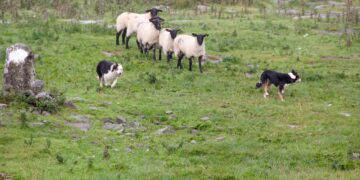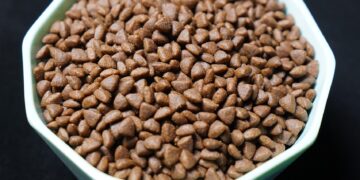How Diet Influences Your Dog’s Health and Wellbeing
When it comes to your dog’s health, few things play as pivotal a role as their diet. Just like humans, the quality of the food your furry friend consumes directly impacts their physical condition, energy levels, and even their emotional state. This detailed look into the diet-health connection will guide you through understanding how what your dog eats affects their overall wellbeing, helping you make more informed choices that will keep your tail-wagging friend happy and healthy.
The Building Blocks: Understanding What Makes Up a Healthy Dog Diet
Picking the Right Ingredients
At the core of every nutritious dog diet are high-quality proteins, carbohydrates, fats, vitamins, and minerals. These nutrients support various body functions including muscle growth, energy provision, and regulating bodily processes. When selecting dog food, look for items where meat (such as chicken, beef, or fish) tops the ingredient list, ensuring your dog gets the protein they require. Simultaneously, be wary of foods laden with fillers like corn or wheat gluten that offer little nutritional benefit and could contribute to allergies.
The Perks of Balanced Nutrition
A balanced diet boosts your dog’s immune system, supporting their ability to stave off sickness. It also contributes to a lustrous, healthy coat and supports eye health. Carbohydrates like brown rice or barley give your dog the energy they need throughout the day, while the right fats, such as those from fish oil, promote joint health especially in older dogs.
Special Dietary Needs: Age, Activity Level, and Health Conditions
Puppies to Seniors: Age-Appropriate Diets
Puppies, adult dogs, and seniors have differing nutritional needs. For instance, puppies require diets rich in calories and protein to support their rapid growth, while older dogs may need fewer calories to prevent obesity, a common problem in senior canines. Tailoring the diet to your dog’s life stage is crucial in promoting optimal health.
Customizing Diet Based on Lifestyle
The lifestyle and activity level of your dog should also dictate part of their diet. Active breeds such as Border Collies will require more calories than a more sedentary breed like a Bulldog. Dogs partaking in regular vigorous exercise may benefit from a diet higher in proteins and fats to help with muscle recovery and sustain their energy levels.
Addressing Health Issues Through Diet
Certain health conditions can be managed, or their symptoms alleviated, through dietary adjustments. For example, dogs with diabetes may need a high-fiber, low-fat diet, while those suffering from kidney disease might require food with lower levels of protein. Consult a vet to best address these special dietary needs and potentially prevent the conditions from worsening.
Deciphering Dog Food Labels: What You Need to Know
Understanding dog food labels can sometimes feel like reading a foreign language. Yet, grasping a few key points can help ensure you’re providing the best possible diet. Look for foods that list a protein source first, and steer clear of artificial additives, colors, and preservatives, which can be harmful to your dog’s health. Additionally, the label should have a statement from the Association of American Feed Control Officials (AAFCO) confirming that the food is “complete and balanced,” a crucial endorsement in pet nutrition.
Common Misconceptions and Questions About Dog Diets
Can Dogs Be Vegetarian?
While some owners may consider a vegetarian diet for their dog due to ethical concerns or health beliefs, it’s essential to understand that dogs are naturally omnivorous and typically thrive on a diet that includes meat. If pursuing a non-meat diet, consultation with a veterinary nutritionist is vital to avoid nutritional deficiencies that can lead to health issues.
Is Grain-Free Diet Better for My Dog?
The grain-free trend has become popular under the belief that grains cause allergies. However, only a small percentage of dogs have grain allergies; most can digest grains well. In fact, grains like oats and brown rice can be beneficial, providing essential nutrients such as fiber. Always base any diet change on your dog’s specific health needs rather than trends.
Incorporating a Healthy Diet: Easy Tips for Dog Owners
Starting with the basics, ensure fresh water is always available to your dog, as hydration is as crucial as nutrition. Introduce new foods gradually to avoid digestive upheavals. Make a habit of reading ingredient labels and consult with your vet regularly to refine your dog’s diet as needed, especially as they age or their health condition changes.
In conclusion, the impact of diet on a dog’s health and wellbeing cannot be overstated. By making informed, careful food choices, you’re not just feeding your dog; you’re nurturing their best life. Embrace the responsibility and enjoy the rewarding journey of watching your dog thrive on a well-balanced diet catered to their needs.














































